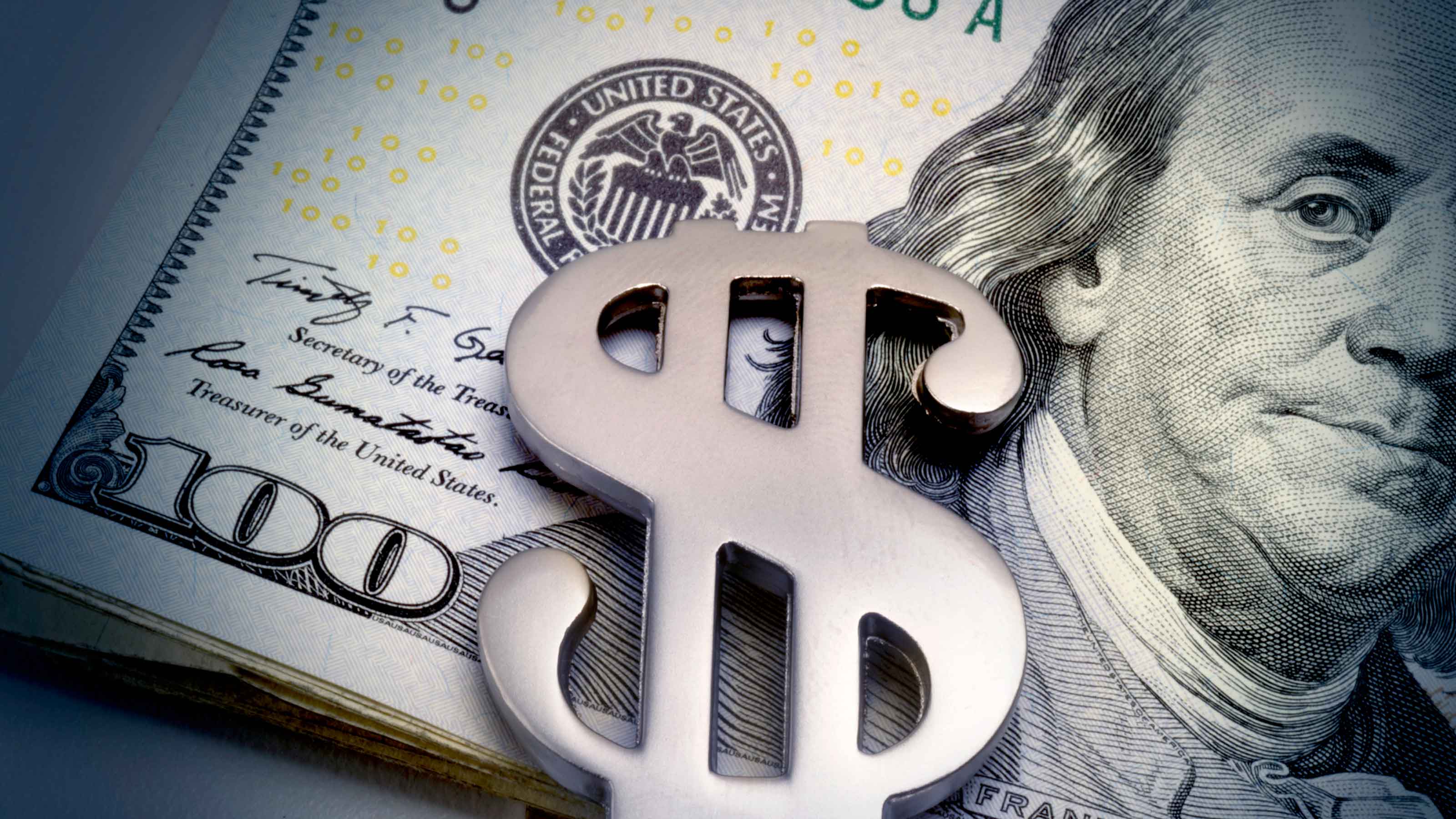A Foreign Fund Manager's Favorite Stock Picks
Oakmark International's David Herro makes going against the grain look easy.


Profit and prosper with the best of Kiplinger's advice on investing, taxes, retirement, personal finance and much more. Delivered daily. Enter your email in the box and click Sign Me Up.
You are now subscribed
Your newsletter sign-up was successful
Want to add more newsletters?
When commodity prices cratered in 2014 and 2015, the share price of Anglo-Swiss commodity miner and trader Glencore (GLCNF) plunged. Investors fretted over the falling prices of Glencore’s assets, particularly its copper hoard, and over the firm’s $30 billion in debt. Glencore’s managers took desperate measures, eliminating the dividend and selling $2 billion in assets and $2.5 billion in stock.
While the bears were growling, David Herro, the lead manager of Oakmark International (OAKIX), spotted a bargain. He loaded up on Glencore in the spring of 2015, then watched as the stock sunk another 30%, making it the largest detractor from the fund’s performance for the 12 months ending Sept. 30, 2015, a span in which Glencore lost 70% of its share price.
But since the bottom, the stock has more than quadrupled, and Herro has earned 300% on his initial investment. Dividend payments are slated to resume this year. Glencore is now the fund’s largest holding.
From just $107.88 $24.99 for Kiplinger Personal Finance
Become a smarter, better informed investor. Subscribe from just $107.88 $24.99, plus get up to 4 Special Issues

Sign up for Kiplinger’s Free Newsletters
Profit and prosper with the best of expert advice on investing, taxes, retirement, personal finance and more - straight to your e-mail.
Profit and prosper with the best of expert advice - straight to your e-mail.
It’s all in a day’s work for Herro, 56, who has been lead manager of the fund since its inception in 1992. He uses a variety of tools to measure the “intrinsic value” of a stock, taking into account a company’s assets and profitability as well as its prospects, and then looks for high-quality firms trading at yawning discounts to that value. That often means buying into troubled companies or industries.
It’s a strategy that clearly works. Over the past 10 years through April 3, the fund returned an annualized 4.5%—an average of 3.2 percentage points per year better than the fund’s benchmark, the MSCI All-Country World Index, ex USA. The fund ranks ahead of 96% of diversified foreign stock funds during that stretch.
Herro currently is finding value in Europe, especially in European banks, as well as European industrials and commodity producers. Indeed, Herro has 73% of the fund in Europe (including the United Kingdom), roughly 25 percentage points more than the MSCI index. “The industrials and materials are good values,” Herro says. “And the financials are cheap, and they haven’t moved much.” Financial services firms he owns that he’d recommend today (trading here as American depositary receipts) include Lloyds Banking Group (symbol LYG, $3), BNP Paribas (BNPQY, $33) and Allianz (AZSEY, $18).
That’s not to say that Europe isn’t facing huge challenges. You can’t read the news today without seeing a story about the retreat from globalism in the U.S. and Europe—with the election of Donald Trump, Great Britain’s decision to leave the European Union, and the upcoming French presidential election, which a right-wing nationalist could win. The sentiment threatens the continued existence of the EU.
But Herro is confident that voters won’t let the EU splinter into pieces, partly because if it did, most countries would lose their extremely low interest rates, hurting borrowers. Without the EU, lenders to economically weaker nations would demand sharply higher yields, which in turn would slow growth.
The fund is loaded with economy-sensitive financials, industrials and consumer stocks. That amounts to a big wager on the EU holding together, albeit without Britain, and growing more rapidly than the consensus predicts.
That’s not Herro’s only contrarian view. He’s one of a minority of analysts who think the dollar is near a peak. The dollar, he says, “is noticeably overvalued. I’d rather be an investor in these non-dollar currencies.”
Herro won’t invest in Russia because of its lack of a free-market economy. He has just 2% of assets invested in China because he dislikes the lack of transparency and the government’s meddling. “Until the Chinese learn to keep their paws off the companies, it’s not so attractive,” he says. For that matter, Herro finds little to like today in most other emerging markets. But he doesn’t let his big-picture views stop him from finding promising investments. He’s bearish on Japan overall, for example, but likes both Toyota (TM, $109) and Honda Motor (HMC, $30).
Herro offers a consistent lesson to individual investors: Focus on value instead of hot performers. “People look in the rearview mirror instead of saying, ‘I want to buy something cheap and sell it dear.’ ”
As much as I admire Herro and Oakmark in general, there are a few flaws. The 1.0% expense ratio is too high given its $29.6 billion in assets and increasing competition from lower-priced exchange-traded funds.
And the fund is volatile. Over the past three years, it was 24% more volatile than the MSCI index. That’s a function of Herro’s appetite for deeply undervalued stocks, which can move erratically.
Investors might worry about the impact of comanager Robert Taylor’s departure last year after eight years at the fund. Michael Manelli replaced him. The change doesn’t bother me; Herro’s investment style plainly permeates the fund.
To investors attracted to his fund, my advice is simple: If you buy, plan to hold on through the bad times. If you do, I’m confident you’ll be well rewarded.
Steve Goldberg is an investment adviser in the Washington, D.C., area.
Profit and prosper with the best of Kiplinger's advice on investing, taxes, retirement, personal finance and much more. Delivered daily. Enter your email in the box and click Sign Me Up.

-
 Americans, Even With Higher Incomes, Are Feeling the Squeeze
Americans, Even With Higher Incomes, Are Feeling the SqueezeA 50-year mortgage probably isn’t the answer, but there are other ways to alleviate the continuing sting of high prices
-
 Hiding the Truth From Your Financial Adviser Can Cost You
Hiding the Truth From Your Financial Adviser Can Cost YouHiding assets or debt from a financial adviser damages the relationship as well as your finances. If you're not being fully transparent, it's time to ask why.
-
 How to Manage a Disagreement With Your Financial Adviser
How to Manage a Disagreement With Your Financial AdviserKnowing how to deal with a disagreement can improve both your finances and your relationship with your planner.
-
 White House Probes Tracking Tech That Monitors Workers’ Productivity: Kiplinger Economic Forecasts
White House Probes Tracking Tech That Monitors Workers’ Productivity: Kiplinger Economic ForecastsEconomic Forecasts White House probes tracking tech that monitors workers’ productivity: Kiplinger Economic Forecasts
-
 Investing in Emerging Markets Still Holds Promise
Investing in Emerging Markets Still Holds PromiseEmerging markets have been hit hard in recent years, but investors should consider their long runway for potential growth.
-
 Stocks: Winners and Losers from the Strong Dollar
Stocks: Winners and Losers from the Strong DollarForeign Stocks & Emerging Markets The greenback’s rise may hurt companies with a global footprint, but benefit those that depend on imports.
-
 5 Exciting Emerging Markets Funds to Buy
5 Exciting Emerging Markets Funds to BuyForeign Stocks & Emerging Markets Emerging markets funds haven't been immune to global inflationary pressures. But now might be the time to strike on these high-risk, high-reward products.
-
 African Stocks: Investing in the Last Great Emerging Market
African Stocks: Investing in the Last Great Emerging MarketForeign Stocks & Emerging Markets A massive middle class and rapid technology-enabled development could turn African stocks into growth darlings over the next two decades.
-
 ESG Gives Russia the Cold Shoulder, Too
ESG Gives Russia the Cold Shoulder, TooESG MSCI jumped on the Russia dogpile this week, reducing the country's ESG government rating to the lowest possible level.
-
 India Is on a Tear
India Is on a TearForeign Stocks & Emerging Markets Massive modernization presents opportunities for investors.
-
 Wasatch Emerging Markets Small Cap Goes Its Own Way
Wasatch Emerging Markets Small Cap Goes Its Own WayForeign Stocks & Emerging Markets This emerging-markets stock fund isn't afraid to stray from the pack.